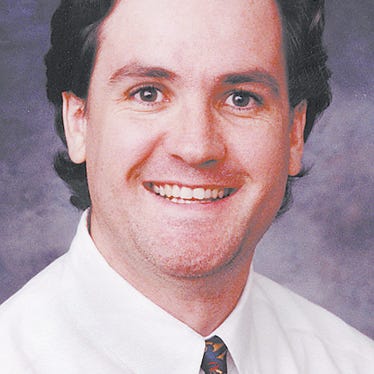
Disaster programs and Farm Service Agency performance were scrutinized during a Wednesday morning hearing of the House Subcommittee on General Farm Commodities and Risk Management. Part of the House’s ongoing audit of farm programs, the latest hearing hit on the FSA’s manner of checking a farmer’s eligibility for programs, the updating of antiquated FSA computer equipment and the time it takes for SURE payments to reach the farm.
While farmers “do the hard work of producing our food, we have to do our part to support them,” said Oklahoma Rep. Frank Lucas, Chairman of the House Agriculture Committee. “Without a safety net, a few bad seasons can put a farm out of business. When we lose that source of production, we don’t usually get it back.”
“When I talk to farmers and ranchers, I hear a constant refrain: we’re not asking for a handout; we just need a floor in place for when the bottom drops out.
“That’s what crop insurance and Title I programs provide: a floor, a safety net for food production.”
Showing how the programs matter in reality, Lucas spoke on the severe, ongoing drought in the Southwest and how wheat planting this fall is threatened. Due to this, disaster sign-ups are inevitable and any fixes to streamline the payment process need to be done quickly.
Further, those complaining about the “enormous” expense of such protections for farmers are misguided, said Lucas. “The costs of losing food production surely outweigh the costs of a safety net. Especially when you consider that many Title 1 programs don’t kick in until prices fall below a set trigger.”
With so many of his fellow legislators deriding almost any government spending, the agriculture community may take some solace in Lucas’ claim that “there aren’t enormous savings to be found from cutting farm programs. They comprise less than one-half of one percent of the federal budget. That’s only 50 cents out of every 100 dollars.”
FSA operations
Following his testimony, Bruce Nelson, FSA administrator, was asked by about changes in the 2008 farm bill with respect to Average Gross Income (AGI).
“We also made some agreements with the IRS as to how that is tracked,” said Texas Rep. Mike Conaway, subcommittee chairman. “There were some initial concerns about producers having to share too much information with FSA locally and there may be some work-arounds for that. Please walk us through that.”
Conaway also asked Nelson to address frequent media claims that the bulk of farm program support payments go to large corporations “that don’t really need them.”
Nelson agreed that “there is a lot of information out there that isn’t quite as accurate as it could be. The AGI limits established under the 2008 farm bill are that an individual producer can have up to $750,000 of on-farm adjusted gross income and $500,000 of off-farm adjusted gross income.”
The USDA and FSA “were tasked in the farm bill with deciding how best to ensure compliance with those AGI provisions,” continued Nelson. The first option was for farmers to bring tax returns into county FSA offices for review. The second option, which was adopted, was for the FSA to work “with the IRS on a data-sharing process. That is where producers authorize the IRS to data-match against the USDA base. (The FSA) basically get back an indication of a red flag or green flag whether the individual producer is in compliance, or not. … I believe it is preferable to use the IRS capacity to assist us with this.”
Nelson, who worked previously as the Montana FSA state executive director, admitted the system has “some glitches. For example, one thing I ran into is that producers have to put the address (supplied) on their tax return on the form sent to the IRS or it might come back. So, it took some time … for producers to understand what is required for the IRS to accept those forms.”
Does the IRS communicate with the FSA or send the clearance to the producer?
“As I understand it, (the FSA office) gets the indication back from the IRS.”
The good news, said Nelson, is “after October 1, we’ll eliminate the form that producers have had to send in to the IRS. We’ll do that authorization as a part of their other (program) sign-up papers.”
Queried on the complexities of signing up for SURE and length of time required to receive a benefit, Nelson said he’d heard plenty of complaints from farmers in Montana. “The principal concern is timeliness of the payments. But it is also a matter of the complexities of the calculations that are hard for folks in our county (FSA) offices.
“There are factors within the SURE program that dictate we won’t be able to make the payments until at least a year after the disaster occurs. This is something we really look forward to working with you on. … We need to work on streamlining these provisions.”
Nelson has talked to farmers “who have no idea they might be eligible for a SURE payment. Once they applied, sure enough, they got a SURE payment.”
Iowa Rep. Leonard Boswell, subcommittee ranking member, asked Nelson about FSA offices being efficient.
Nelson: “The people in our county FSA offices work very hard. ... They do a great job.
“In 2011, with the budget we have for this fiscal year, we are able to sustain our staffing levels as well as our field operations. But with the congressional appropriations process for the next fiscal year still incomplete, one thing is pretty clear: we’ll likely have fewer dollars for operations in FY2012.”
As for the modernization of FSA computer systems, Nelson said he’s“seen how hard the transition (known as Modernize and Innovate the Delivery of Agricultural Systems, or MIDAS) from 1985 computer technology to the modern era is. … It’s important to remember the (modernization process) isn’t just about hardware and software. That is a big part of it. But (another part) is also looking at how we do business at FSA in order to try and streamline and operate with more efficiency.”
About the Author(s)
You May Also Like






